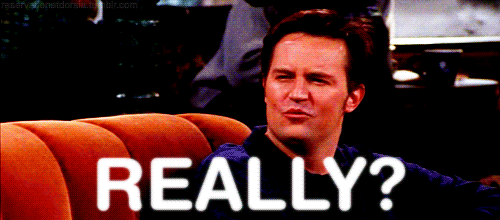Is That Really Barron Trump Singing - The Truth Behind Online Claims
There is often a lot of talk online about all sorts of things, and sometimes, a question pops up that makes people stop and wonder, like when someone asks, "is that really Barron Trump singing?" This kind of question, you know, makes folks curious and want to figure out what's what. It's pretty common, actually, for sounds or pictures to circulate on the internet, leaving many people to wonder if what they are seeing or hearing is true. The internet, in a way, brings us so much, but it also means we sometimes have to pause and consider if something is truly what it seems. This curiosity about whether something is genuinely real, especially a sound or a voice, is a feeling many of us share when we come across something unexpected. We want to know the facts, you see, and understand the genuine story behind what we encounter.
When claims about public figures, or anyone really, start making the rounds on social media or other platforms, it is almost a natural human response to feel a spark of curiosity. People tend to want to sort out what holds up to scrutiny and what might just be a bit of a misunderstanding or perhaps something put out there without much basis. So, when a claim about a well-known person's voice, like "is that really Barron Trump singing," appears, it understandably catches a lot of people's attention, prompting them to look for some solid answers. This immediate reaction to question what we hear or see is, in fact, a pretty good thing.
This whole situation brings up a bigger conversation about how we figure out what's true in a world full of quick information. It gets us thinking about the words we use, too, like the word "really," and what it means when we ask if something is "in reality" or "in actual truth." You know, that very word carries a lot of weight when we are trying to sort out facts from things that are just ideas or rumors. It's about getting to the bottom of things, making sure what we accept as true has some genuine basis. This kind of thoughtful approach is something we could all use a little more of, particularly when it comes to sounds and pictures that might not be exactly as they appear.
- Logan Paul Apology Copypasta
- Lv Little Tokyo
- Davon Godchaux Pff
- What Is Patrick Mahomes Nationality
- Heb Credit Cards Accepted
Table of Contents
- Barron Trump - A Brief Look
- What Does "Really" Mean Anyway?
- The Spread of Online Sounds and Pictures
- Is That Really Barron Trump Singing - What Is the Claim?
- How Can You Tell What Is True About Online Sounds?
- The Impact of Hearing a Voice That Might Not Be Real
- The Importance of Asking "Is That Really...?"
- How We Use the Word "Really"
Barron Trump - A Brief Look
Barron Trump is a person whose name many people recognize, largely because of his family connections. He is, in fact, the son of a former United States President, which places him in a certain public spotlight, even though he is a private citizen. People often become curious about the lives of individuals connected to such well-known public roles. So, when a question like "is that really Barron Trump singing" pops up, it’s understandable that a lot of folks might pause and wonder about it. His public identity, you see, often sparks interest in various aspects of his life, even those that might be personal. This interest is, in some respects, just a part of being associated with a prominent family.
Given his family's very public presence, there's a certain level of general awareness about him, though he remains largely out of the public eye. Any sort of news or claim about him, especially something as specific as a singing voice, tends to get people talking and asking questions. It's quite typical, actually, for people to have a general idea about his background, which makes claims about his activities, like singing, stand out. This is why when someone asks, "is that really Barron Trump singing," it makes people think about the actual facts of the matter. We are, in a way, always trying to piece together the genuine story.
| Full Name | Barron William Trump |
| Birth Year | 2006 |
| Parents | Donald J. Trump, Melania Trump |
| Public Role | Son of a former U.S. President |
What Does "Really" Mean Anyway?
When we ask, "is that really Barron Trump singing," we are getting at the very heart of what the word "really" means. You see, the meaning of "really" often points to something being "in reality" or "in actual truth." It's a word we use when we want to be sure about something, to confirm if it's genuinely happening or if a statement is truly a fact. For example, if someone tells you they've been working hard, and you respond with "really?", you are, in fact, expressing a mix of interest, surprise, or even a bit of doubt, wanting to know if their claim is truly factual. This simple word helps us to sort out what is solid and what might just be a story. It's a key part of how we make sense of the information around us, especially when things seem a little too good or too strange to be true. So, when we hear a claim, that word "really" becomes very important.
- What Happened To Bob Rapper
- Who Stood Trial For The Caylee Anthony Case
- Yiff
- Kia Trumps Mom
- Cassie Del Isla
The word "really" is often put in front of an opinion, rather than a straightforward fact, in everyday talk. This means it can signal that what follows is someone's viewpoint, even if they present it with conviction. For instance, if someone says, "that was really a good performance," they are sharing their personal feeling about it, not necessarily stating an objective truth that everyone would agree on. This distinction is quite helpful when we are trying to figure out if we are dealing with a solid piece of information or just someone's thoughts on a matter. It helps us, in some respects, to approach claims with a healthy sense of inquiry. Knowing this helps us to think more carefully about things like "is that really Barron Trump singing," because we then consider if it's a verifiable fact or just a popular idea.
In its stricter usage, "really" is a word that helps to show how much of something there is, or how strong something is. It's like saying something is "very" or "extremely" true. But, you know, its most powerful use is when we want to get to the actual truth of a matter. It's a simple word, but it carries a lot of weight when we are trying to figure out if something is indeed real. People are, in fact, increasingly recognizing the importance of checking what's "really" going on. This push for genuine information is quite good, particularly in times when so much can be shared so quickly. This makes asking "is that really Barron Trump singing" a proper and important question to ask.
The Spread of Online Sounds and Pictures
These days, sounds and pictures can spread across the internet almost instantly, reaching a lot of people in a very short amount of time. It's actually quite amazing how quickly a piece of audio or a video clip can travel from one person's screen to countless others. This speed, however, also means that things can sometimes get passed around without much thought about where they came from or if they are genuinely what they appear to be. You know, it's pretty easy for a sound file, for instance, to be altered, or for a voice to be made to sound like someone else entirely. This is a bit of a challenge in our modern world, as we rely so much on what we see and hear online. So, when a sound file pops up and someone asks, "is that really Barron Trump singing," it immediately brings up the question of how easily things can be manipulated. This makes it really important to think about the origins of what we consume.
The tools that allow people to create or change sounds and voices have become much more available to everyone. This means that a voice that sounds very much like a particular person might, in fact, be a clever creation rather than an actual recording of that individual. This capability has changed the way we need to approach things we hear online. It means we cannot always take what we hear at face value, even if it sounds quite convincing. We have to, in a way, develop a habit of asking for proof or looking for other sources to back up what we are told. This is especially true when it comes to specific claims, such as whether a particular public figure, like Barron Trump, is truly singing in an audio clip. It's a skill we all need to learn, basically, to sort out the genuine from the made-up.
Is That Really Barron Trump Singing - What Is the Claim?
When the question "is that really Barron Trump singing" comes up, it usually means there's an audio clip or a video that someone has shared, suggesting it features his voice. People hear it, and because of his public identity, they get curious and want to know if it's legitimate. These kinds of claims about public figures, especially those who are not regularly in the entertainment world, tend to generate a lot of discussion and questioning. It's a natural response, really, to wonder about the authenticity of something that seems a bit out of the ordinary for a person. So, the claim itself is simply that an audio recording contains his voice performing a song. The key part, you know, is figuring out if that claim is actually true or just something that has spread without much basis. This is where the idea of "in actual truth or fact" becomes very important for us.
It's worth noting that, generally speaking, claims about public figures doing things outside their usual public roles often circulate without much official backing. For instance, if a public figure were to release music, it would typically be announced through official channels or by their representatives. When an audio clip just appears online, without any such official word, it raises a bit of a red flag for those who are trying to figure out what's true. This lack of formal confirmation is, in fact, a common sign that a claim might need a closer look. So, when we hear "is that really Barron Trump singing," our first thought should probably be about where the sound came from and if there's any official word about it. This approach helps us to be a little more careful about what we believe.
How Can You Tell What Is True About Online Sounds?
Figuring out if an online sound, like the one that makes people ask "is that really Barron Trump singing," is true requires a bit of detective work. One of the first things to consider is the source of the sound. Where did it originally come from? Was it posted by a reliable news organization, an official account, or just a random social media user? The origin of the information tells you a lot about how much you can trust it. You know, if it comes from an unknown source, it's probably a good idea to be a little bit skeptical. This initial check helps us determine if something is "in reality" what it claims to be. It's about looking for solid ground, basically, before accepting something as a fact. This simple step can save a lot of confusion, actually, when dealing with all sorts of online content.
Another helpful step is to look for other reports about the same claim. Are other reputable news outlets or verified sources also reporting on it? If a claim is only appearing in one place, especially a place that isn't known for being careful with facts, it's a pretty strong sign that it might not be accurate. Official statements from the person or their representatives are, of course, the best way to confirm something. If there's no official word, then it's harder to say for sure that something is true. So, when you hear a sound and someone asks, "is that really Barron Trump singing," you should really try to find if there's any official word on it. This kind of cross-referencing helps us to get closer to the actual truth of things, rather than just going with the first thing we hear.
Sometimes, the quality of the sound itself can offer clues. Does it sound clear and natural, or does it seem a bit off, perhaps like it has been put together from different pieces? While technology has made it easier to create very convincing fakes, there can still be subtle signs that something isn't quite right. It's a bit like looking at a picture and noticing something that just doesn't seem to fit. These small details can sometimes tell you a lot about whether something is "in actual truth" or just a clever fabrication. So, when you're wondering "is that really Barron Trump singing," listening closely to the audio might give you some hints. It's about paying attention to the small things, you know, that often reveal the bigger picture.
The Impact of Hearing a Voice That Might Not Be Real
When people hear a voice that they believe might be a well-known person, but it turns out not to be real, it can have several effects. For one, it can spread misinformation very quickly. If a lot of people believe something that isn't true, that belief can take on a life of its own, making it harder for the actual facts to get out. It's a bit like a game of telephone, where the original message gets changed as it passes from person to person. This can lead to a lot of confusion and, in some cases, can even harm a person's reputation if false claims are made about them. So, when someone asks, "is that really Barron Trump singing," and the answer is no, the initial spread of the false claim can still leave a lasting impression on some people. It's quite important, actually, to stop these things from spreading too far.
Another impact is that it can make people less trusting of information they find online, even from reliable sources. If they are constantly exposed to things that turn out to be fake, they might start to doubt everything, which isn't good either. We need to be able to trust some sources, you know, to make sense of the world. This is why it's so important to have conversations about how to tell what's true and what's not. It helps people to be discerning without becoming completely cynical. The whole idea of asking "is that really Barron Trump singing" is a good example of how we can approach claims with a healthy amount of doubt, but also with a desire to find the actual truth. It's about finding a balance, basically, between believing everything and believing nothing at all.
The Importance of Asking "Is That Really...?"
Asking "is that really...?" is a very important habit to develop, especially in our current world where information moves so fast. This simple question pushes us to pause and consider the actual facts behind a claim, rather than just accepting it at face value. It's about seeking the "in reality" aspect of things, looking for solid proof that something is indeed true. When we hear something surprising, like a sound clip that might or might not be a particular person singing, our natural response to question it is, in fact, a sign of good critical thinking. This helps us to avoid falling for things that might not be genuine. So, every time you hear something that makes you wonder, like "is that really Barron Trump singing," remember that asking that question is the first step towards finding the truth. It's a fundamental part of being a thoughtful consumer of information, you know.
This approach helps us to distinguish between what is genuinely true and what is merely a popular idea or a rumor. The word "really," as we've discussed, is often used to preface an opinion rather than a fact. So, when someone says, "I really think this is true," they are sharing their belief, which is different from stating something that has been proven. By asking "is that really...?", we are essentially asking if something is a proven fact or just someone's idea about it. This distinction is quite helpful in a world where opinions and facts can sometimes get mixed up. It encourages us to look for the evidence, to seek out the actual truth, rather than just going with the flow. This habit is, in some respects, one of the most valuable skills we can have today.
How We Use the Word "Really"
The way we use the word "really" tells us a lot about how we interact with information and express our thoughts. It's a word that can convey a strong sense of certainty, like when you say, "I really believe that." But it can also show surprise or doubt, as in the example, "I've been working hard." "Really?" Here
- Crustal Couture Dress To Impress
- Michael Gargiulo Daughter
- Martin Scorsese Man%C5%BEelka
- Kia Trumps Mom
- Mia Z Name

Justin Timberlake Really GIF - JustinTimberlake Really Stare - Discover

Really? - Reaction GIFs

Oh Really GIF - Oh Really Nicolas Cage - Discover & Share GIFs